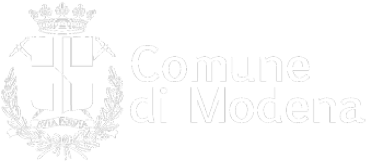San Felice sul Panaro
Because the area is wild and swampy, Bronze Age Terramare villages developed here with houses built on stilts. Land reclamation began with the Romans and was continued into the 8th century by the monks of Nonantola Abbey. A document from 927 refers to a fortified village here called “Castellum Sancti Felicis.”
After the Unification of Italy, the phrase “sul Panaro” (on the Panaro) was added to the town’s name to distinguish this San Felice from others. The original construction of the Rocca Estense can be traced to the time of the Barbarian Invasions and, over the centuries, the fortress became a splendid castle with boundary walls and a moat. Because of its strategic position on the border between Modena and Ferrara, San Felice sul Panaro became a fiefdom of Matilde di Canossa during the period in which disputes between Este and Pico were continuous. Unfortunately, the town was severely affected by the May 2012 earthquake and its historic center, with the beautiful Rocca Estense, remains damaged.
Why it's worth a visit
A typical town of “Bassa Modena,” San Felice sul Panaro is located near the river of the same name. San Felice sul Panaro suffered severe earthquake damage but retains the charm of the ancient village in which what remains of its Rocca (fortress) stands proudly. Together with Finale Emilia, San Felice sul Panaro was one of the places most heavily damaged by the earthquake, but its residents have kept alive their dream of starting over. For that alone, it’s worth a visit.
Sites you won't want to miss
Rocca Estense
The Rocca Estense is San Felice’s most important monument, a splendid example of square-plan medieval Emilia-style architecture. Only the exterior is currently open to visitors as a result of damage from the May 2012 earthquake, but even admiring the outside of the building will take you back to a fascinating past of duels and battles.
Good things to eat
In addition to the local products that represent the traditions of the Modena area, including Modena’s traditional PDO (protected designation of origin) and PGI (protected geographical indication) balsamic vinegar, its PDO Parmigiano-Reggiano cheese, varieties of sparkling red Lambrusco wine, zampone and cotechino (dishes made from a mixture of ground pork flavored with herbs and spices and stuffed into the hollowed-out trotter or lower-leg of a hog), and traditional dishes such as fresh egg pasta, the San Felice area also produces Salame di San Felice. This variety of cured meat is known for its delicious aroma and characteristic sweetness, both of which are the result of the use of selected cuts of pork obtained exclusively from local hog farms. Its intense ruby-red color and soft texture come from red wine—always a Lambrusco—added during its preparation. San Felice Salame is produced and packaged exclusively in the towns and villages of Camposanto, Cavezzo, Concordia sulla Secchia, Finale Emilia, Medolla, Mirandola, San Felice sul Panaro, San Possidonio, and San Prospero in Modena Province.
Nearby
By Bike
The Modena-Finale Emilia bike path crosses San Felice sul Panaro. Like many towns in the “Bassa Modenese,” it has an articulated network of cycling paths that connect to Emilia-Romagna’s most important cities (Modena and Ferrara, e.g.). Because of that, in 2020 San Felice sul Panaro was awarded the title of “Bicycle-Friendly Town” by the Italian Federation for the Cycling and the Environment.
Discover all the area’s biking trails on the “Pedalate Amiche” site (https://www.provincia.modena.it/temi-e-funzioni/cultura-e-turismo/itinerari-turistico-culturali/-amiche).
The Church of the Birth of the Virgin in the Village of Rivara
The Church of the Birth of the Virgin dates to the early decades of the 1600s, and its façade recalls elements of classical architecture. It is divided by four semi-pillars, which rise from a plinth at the base and are connected to one another by a cornice below a recessed space called a tympanum. A fresco depicting the Assumption of the Blessed Virgin Mary among the Angels, executed in 1958 by Giovanni Botti of Domodossola during the restoration of the façade, appears in the tympanum. To the right of the church but detached from it stands the bell tower, about twenty-six meters high. After years of restoration following the 2012 earthquake, the church was reopened in 2019.
The La Pica Botanical Garden
The La Pica Botanical Garden, a collection of over 1,000 different plants from all continents and climate zones, is located on a 21,000 m2 plot in the village San Biagio in Padule. Eighty-one flower beds cross the Gardens, creating a series of spiral paths about three kilometers long that are excellent for a pleasant walk.
The Best Time for a Visit
The mild climate of the Spring and Fall make those the best seasons for a visit.






